Case study: PepsiCo’s Global Challenge
PepsiCo has achieved a 13% annual growth rate, focusing particularly on international market expansion, especially in India. Under CEO Indra Nooyi’s motto “Performance with Purpose,” the company balances profit-seeking with social responsibility through developing healthier snacks, reducing environmental impact, and improving employee welfare. The company demonstrates how corporations can successfully navigate political, economic, and legal systems while fulfilling ethical and social responsibilities, notably achieving $55 million in annual savings through environmental protection projects.
1. Political Systems

Countries operate under different political systems, each with its own implications for businesses. A totalitarian system is characterized by a government that maintains complete control over its citizens’ lives and allows little to no opposition. Historical examples include Nazi Germany and the Soviet Union, while North Korea represents a contemporary case. The defining features of totalitarian regimes include centralized authority, restricted political participation, and the suppression of civil liberties. Within this system, businesses may benefit from reduced political opposition but must also contend with corruption and unpredictable legal enforcement.
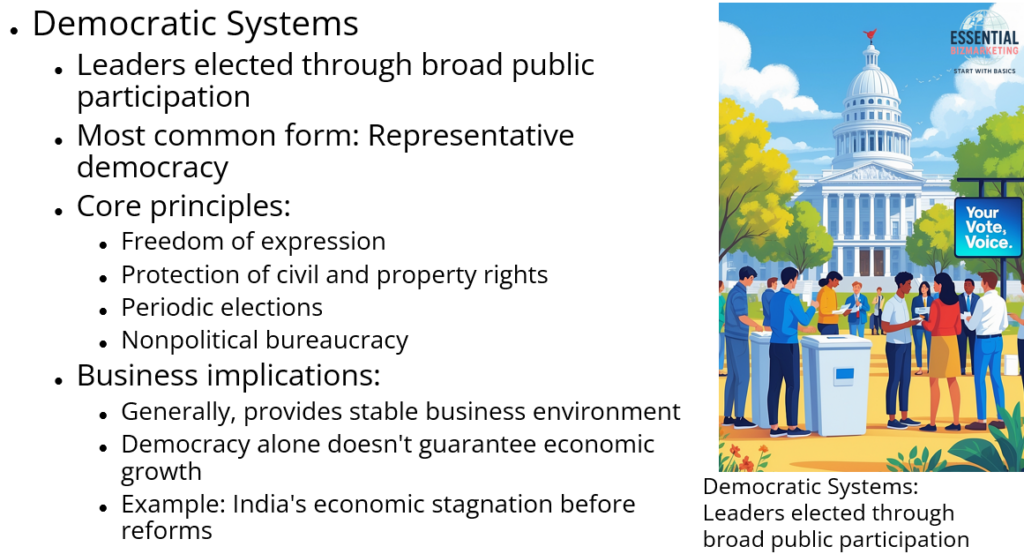
Democracy, in contrast, is a system where government leaders are elected through broad public participation, ensuring greater transparency and accountability. The most common form is representative democracy, in which citizens elect individuals to govern on their behalf. Core principles of democracy include freedom of expression, protection of civil and property rights, periodic elections, and a nonpolitical bureaucracy. Although democracies generally provide stable environments for businesses, they do not always guarantee economic growth. For instance, India, despite being the world’s largest democracy, experienced prolonged economic stagnation before recent reforms improved its growth trajectory.
2. Economic Systems
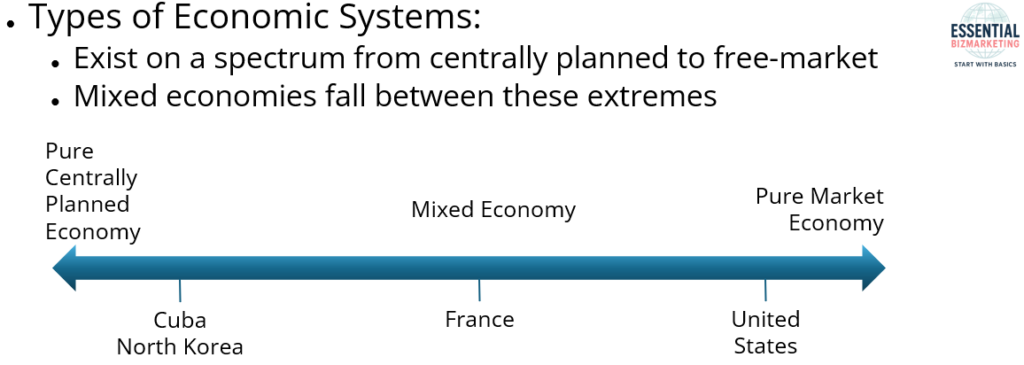
The way resources are allocated and businesses operate within a country is determined by its economic system. These systems exist on a spectrum, ranging from centrally planned economies to free-market economies, with mixed economies lying between the two.
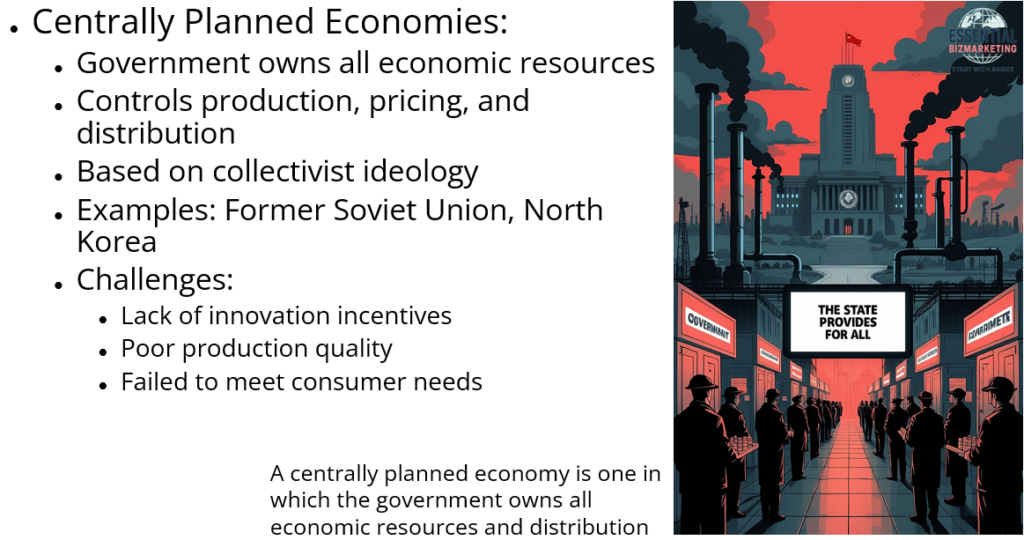
A centrally planned economy is one in which the government owns all economic resources and controls production, pricing, and distribution. This model, rooted in collectivist ideology, was historically adopted by Communist nations such as the former Soviet Union and North Korea. However, centrally planned economies often struggle with inefficiencies due to a lack of incentives for innovation and production quality. Many of these economies failed to meet consumer needs, leading to their decline and transition toward market-based reforms.
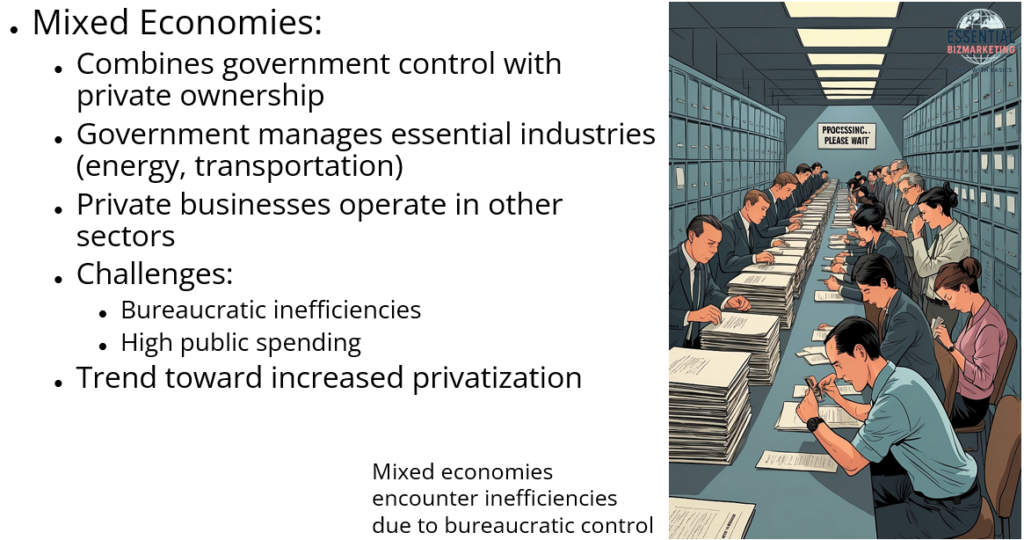
Mixed economies combine elements of government control with private ownership. Governments in such systems typically manage industries deemed essential to national security, such as energy and transportation, while allowing private businesses to operate in other sectors. While mixed economies aim to balance economic growth with social welfare, they often encounter inefficiencies due to bureaucratic control and high public spending. Many nations have progressively shifted toward privatization to enhance economic efficiency.
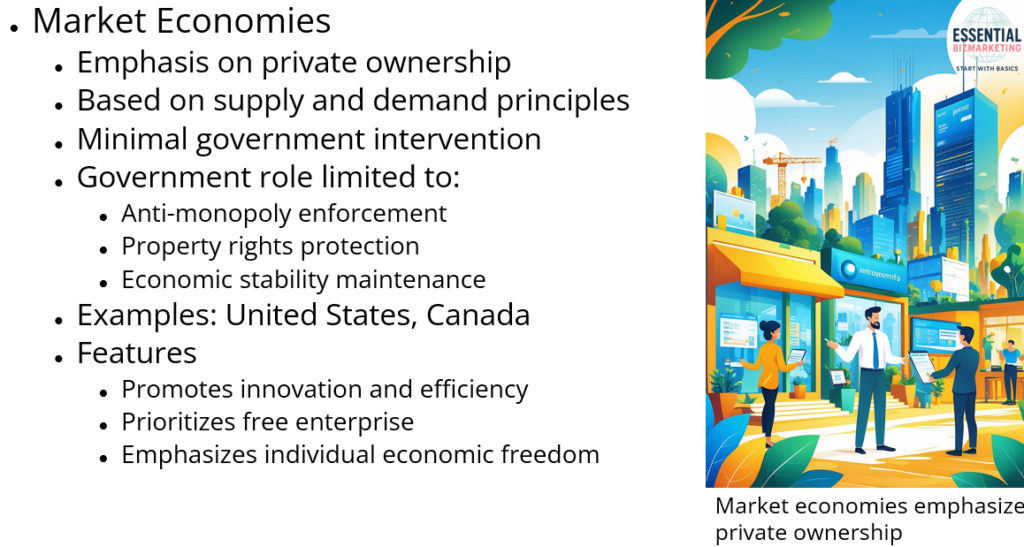
At the other end of the spectrum, market economies emphasize private ownership and operate based on supply and demand. In such systems, individuals and businesses make decisions about production and pricing, with minimal government intervention. While market economies promote innovation and efficiency, governments still play a role in enforcing laws that prevent monopolies, protect property rights, and ensure economic stability. Countries like the United States and Canada exemplify market economies that prioritize free enterprise and individual economic freedom.
3. Legal Systems
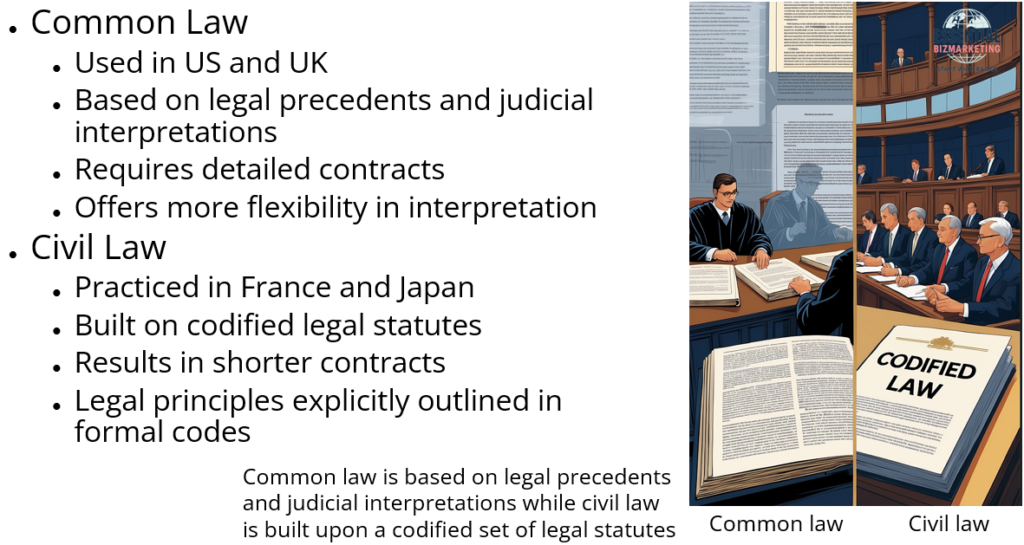
The legal framework within a country establishes the rules that govern business operations and dispute resolution. There are three primary legal systems worldwide: common law, civil law, and theocratic law.
Common law, which is followed in countries such as the United States and the United Kingdom, is based on legal precedents and judicial interpretations. This system allows for flexibility, but it also necessitates detailed contracts to account for various legal contingencies. In contrast, civil law, which is practiced in nations such as France and Japan, is built upon a codified set of legal statutes that dictate legal obligations. Because of its structured nature, civil law tends to result in shorter contracts, as legal principles are explicitly outlined in formal codes.
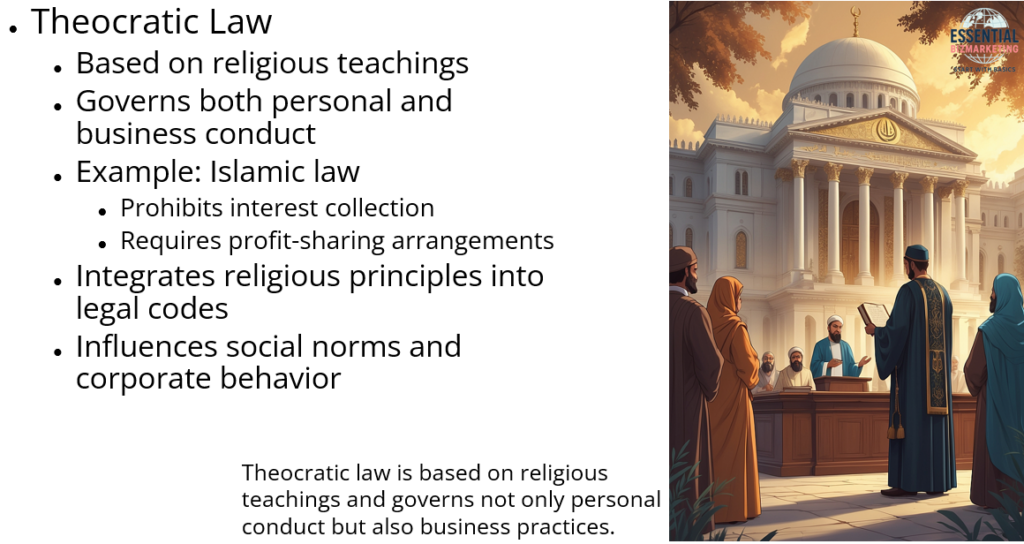
Theocratic law, on the other hand, is based on religious teachings and governs not only personal conduct but also business practices. Islamic law, for instance, imposes restrictions on financial transactions, prohibiting the collection of interest and mandating profit-sharing arrangements instead. Countries with theocratic legal systems integrate religious principles into their legal codes, shaping both social norms and corporate behavior.
4. Global Legal Issues for Businesses
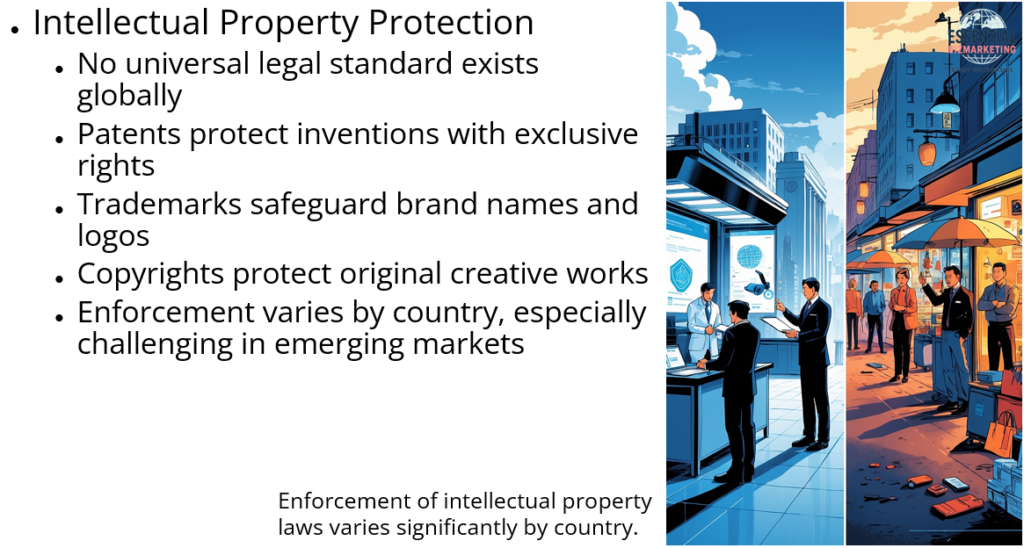
International firms must navigate legal complexities across different jurisdictions, as there is no universal legal standard governing business practices worldwide. One of the most significant concerns for multinational corporations is the protection of intellectual property. Patents safeguard inventions by granting exclusive rights to the inventor for a specified period, while trademarks distinguish products and services by protecting brand names and logos. Copyrights ensure that creators maintain control over their original works, such as books, music, and software. However, enforcement of intellectual property laws varies significantly by country, and piracy remains a persistent issue, particularly in emerging markets.
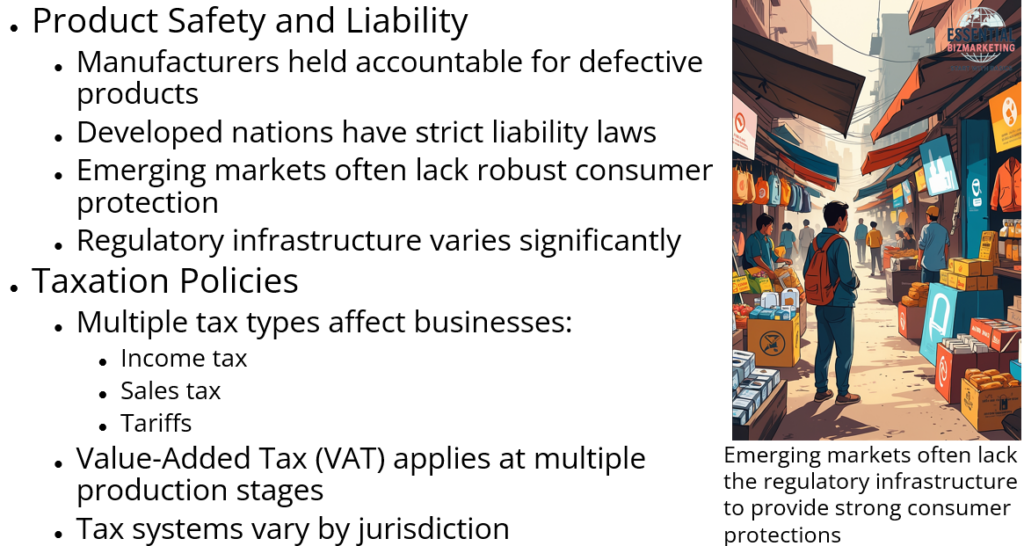
In addition to intellectual property concerns, businesses must comply with product safety and liability regulations, which hold manufacturers accountable for defective or harmful products. Developed nations enforce stringent liability laws, whereas emerging markets often lack the regulatory infrastructure to provide strong consumer protections. Companies must also consider taxation policies, as governments impose various forms of taxes, including income tax, sales tax, and tariffs, to generate revenue. Some countries implement value-added tax (VAT) systems, which levy taxes at each stage of production and distribution.
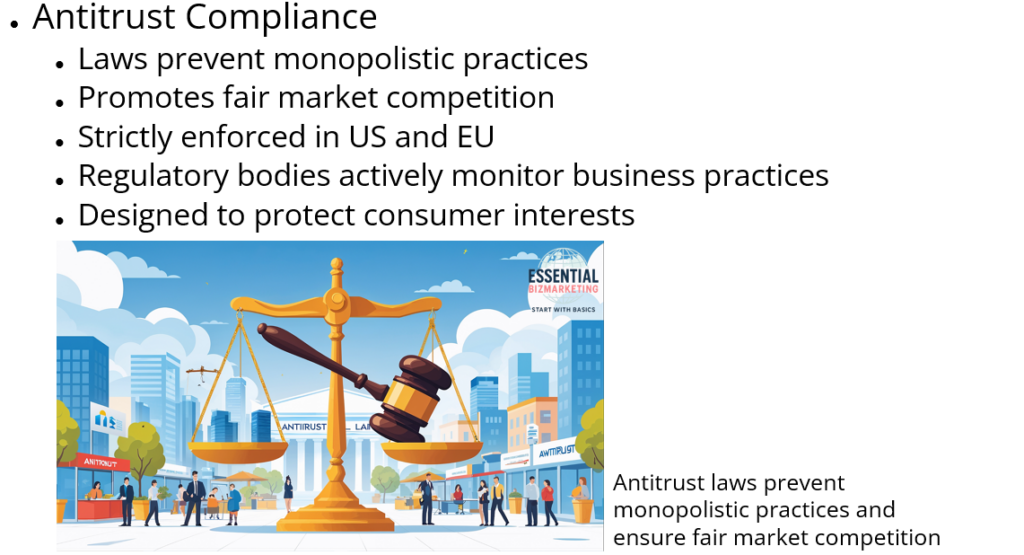
Another critical legal consideration is compliance with antitrust laws, which prevent monopolistic practices and ensure fair market competition. Regulatory bodies, particularly in the United States and the European Union, actively enforce these laws to protect consumers and promote competitive business environments.
5. Ethics and Corporate Social Responsibility
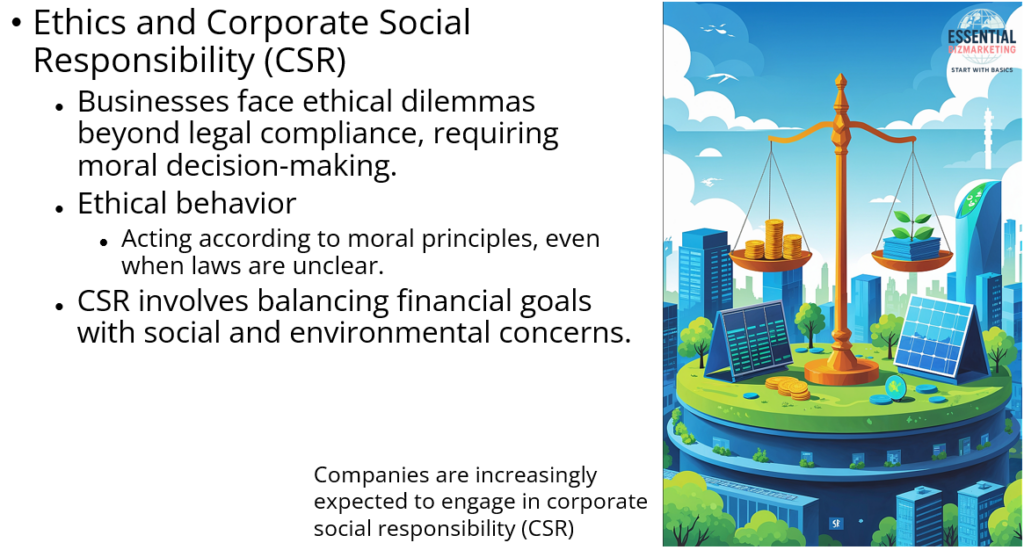
Beyond legal compliance, businesses face ethical dilemmas that require careful decision-making. Ethical behavior involves acting in accordance with moral principles, even in situations where laws do not provide clear guidance. Companies are increasingly expected to engage in corporate social responsibility (CSR), which involves balancing financial objectives with broader social and environmental concerns.
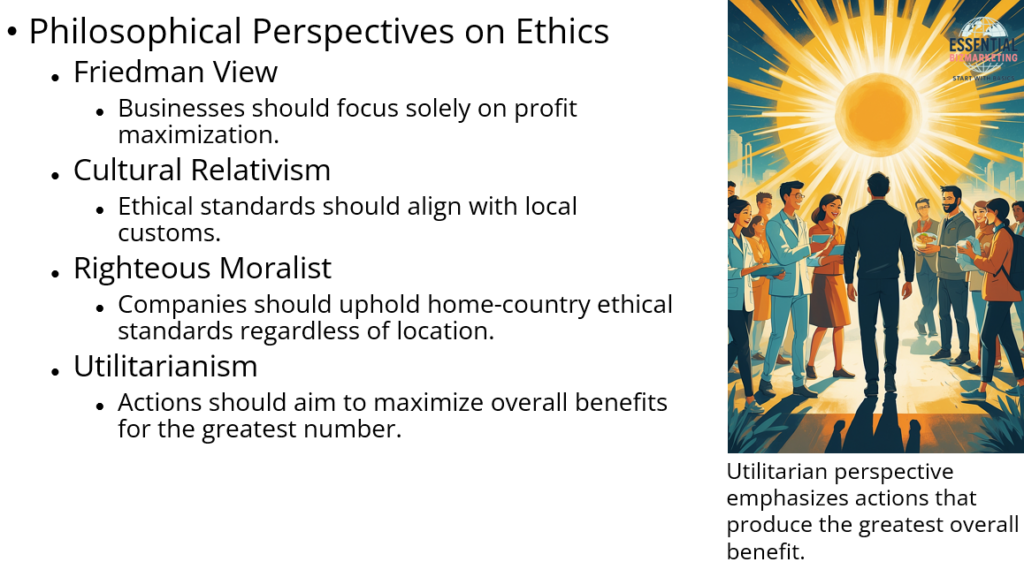
Different philosophical perspectives influence corporate approaches to ethics. Some argue that businesses should focus solely on maximizing profits, as proposed by the Friedman view, while others advocate for adapting ethical standards to local customs, as suggested by cultural relativism. The righteous moralist approach, in contrast, maintains that companies should uphold their home-country ethical standards regardless of where they operate. Alternatively, the utilitarian perspective emphasizes actions that produce the greatest overall benefit.
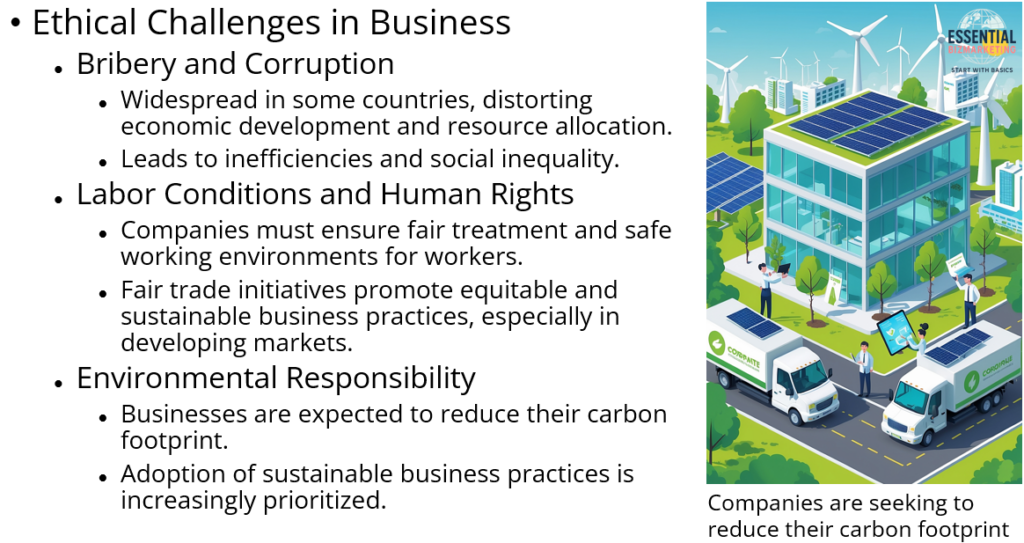
Bribery and corruption present significant ethical challenges, particularly in countries where such practices are widespread. Corruption distorts economic development and misallocates resources, leading to inefficiencies and social inequality. Companies must also consider labor conditions and human rights, ensuring that workers are treated fairly and provided with safe working environments. Fair trade initiatives offer a way for businesses to support equitable and sustainable practices, particularly in developing markets. Environmental responsibility has also become a priority, with companies seeking to reduce their carbon footprint and adopt sustainable business practices.
6. Conclusion
A thorough understanding of political, economic, and legal systems is essential for businesses operating in international markets. Companies must navigate complex regulatory landscapes, adhere to ethical standards, and adapt to cultural differences while striving to maintain profitability. By integrating responsible business practices and complying with legal frameworks, firms can build sustainable and ethical global operations.
Related videos
- Companies and Political Economy
- Title: Go Woke or Go Broke?
📚 References
Wild, J. J., & Wild, K. L. (2019). International business: The challenges of globalization (9th ed.). Pearson.
📁 Start exploring the Blog
📘 Or learn more About this site
🧵 Or follow along on X (Twitter)
🔎 Looking for sharp perspectives on global trade and markets?
I recommend @GONOGO_Korea as a resource I trust and regularly learn from.
